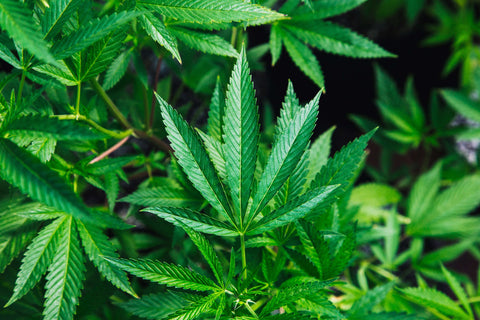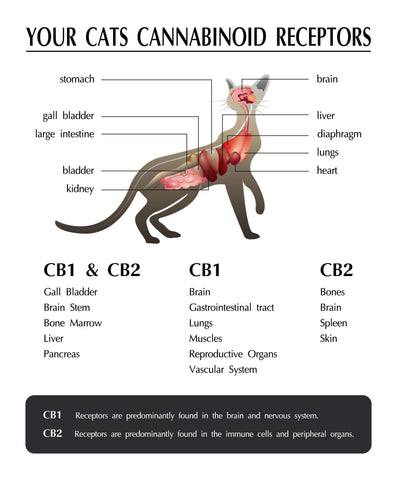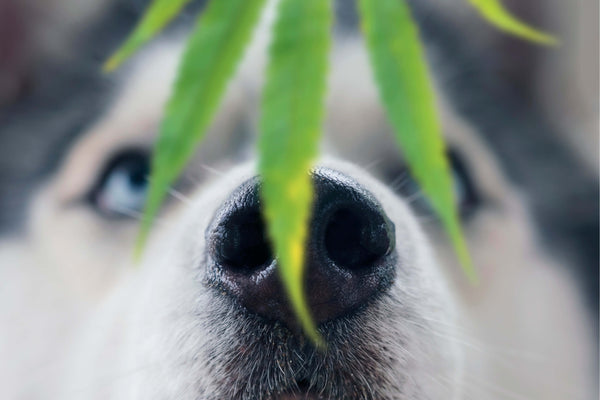Medicinal Hemp Products for Pets?
How Hemp Can Help
By Claire Bolger
America has a long history of “all-natural” tinctures and tonics being peddled across the country claiming to help with any and all ailments of life. While we no longer get medical advice from traveling salespeople in covered wagons, we are still looking for natural ways to help ourselves and our pets live healthier and happier lives. As the research has picked up in the last few years there has been a lot of new and promising information on how hemp-derived CBD can help improve health, happiness, and overall quality of life in all mammals, including ourselves and our furry family members!
So what is Hemp?

Hemp is a plant within the Cannabis plant family. It is an annual, herbaceous, long-fibered plant, which at its peak height can reach over twenty feet tall. Historically, it has been used to make sails on boats, clothing, and many other textiles due to the fiber’s strength.
While it has been used for centuries, hemp’s familial tie with the marijuana plant gave it a controversial reputation. When Oregon--along with twenty-five other states--made medical marijuana legal, medical research became better funded and is producing stunning results.
Hemp contains no THC (Tetrahydrocannabinol) which is the cannabinoid responsible for the ‘high’ feeling that humans get when we ingest it. Hemp is extremely high in CBD (Cannabidiol), which along with 113 other cannabinoids, works to wake up our body's Endocannabinoid system.

The Endo-whatsystem?
In the mid-1990s, an Israeli researcher, Dr. Ralph Mechoulam, discovered a dormant system within the body that could be kick-started with the introduction of cannabinoids. The Endocannabinoid System is made up of a series of receptors (referred to as CB1 and CB2) which allow two-way communication throughout the body through the nervous and immune systems. CB1 receptors are located mostly in the brain and are present anywhere the nervous system is found--particularly in our organs. CB2 receptors are found within the immune system.
When CBD is absorbed, the immune and nervous system are able to dispatch receptors to isolate any affected areas and to target pain receptors to suppress discomfort. Since CBD is absorbed as a fat, it travels all over the body allowing it to reach from the tips of your pet's tail to the tops of their ears!
So how can hemp help my pet?

The medical use of CBD has a wide range of effects within the body. One of the highest areas of success reported is pain relief--the body is able to target inflammation and pain receptors in order to seal off the pain and get to work on healing.
The current alternatives for long-term pain relief are opioid-based pills. These may mask the pain, but they do nothing to help solve the root of the health problem and have been known to be highly addictive.
CBD is non-addictive and is helpful for more than just pain relief.
It can help with situational anxiety, such as when you are moving, taking a trip with your pet (going to the vet, camping, introducing them to any new situation or place), or any time there are constant or random loud noises from fireworks on the 4th of July or from nearby construction.
Tension in your pet's home, whether it's coming from their humans, their environment, or just being a “nervous Nelly,” can create undue stress on their systems and cause health issues if left untreated. CBD helps calm your pet down without making them lethargic or sleepy, so your pet can be a calmer version of themselves without losing their personality.
Acting as a neuroprotectant, CBD is able to create barrier cushions around damaged brain cells to allow them to heal. It even slows the rate of aging in brain cells. CBD has been reported to help pet epilepsy in 50% of the test subjects by reducing the rate and severity of seizures.
It has also been shown to improve animals' skin and coat health, inflammation, and even helps with cancer symptoms.
If your pet is not currently suffering from any major medical issue, the presence of CBD in their system is still beneficial because it allows their body to do its daily job even better than it already is.
I’m not getting my pet high, am I?

Absolutely not. The difference between CBD from hemp and the THC in marijuana cannabinoids is that CBD will not produce that same ‘stoned’ effect.
Pets can have an adverse reaction (called Static Ataxia) when exposed to THC. Their metabolism takes about twice as long to process the THC, and it can affect every pet in different and sometimes scary ways.
There is no way of knowing which pets will suffer Static Ataxia, which can cause their heart rate to drop, equilibrium to be distorted, and ultimately cause a highly stressful situation for you and your pet.
CBD contains all of the medicinal properties, but with none of the psychoactive effects, making it completely pet safe. You cannot overdose on cannabinoids; it is impossible to overload your pet's system.
Sounds great, where can I buy some?
Glad you asked!
Pets on Broadway has recently brought in the Pet Releaf line of products. Pet Releaf is a Colorado-based company, founded by two pet parents who wanted to help relieve their dog's pain in a natural way.
They perform independent testing on all of their products to maintain health and safety standards, as well as to ensure equal levels of CBD in each treat or tincture so that your pet is receiving an equal amount each time.
Pet Releaf’s hemp oil is made from organic hemp plants. By extracting from the entire plant, they are able to keep all 113 cannabinoids and allow them to interact with each other as they naturally would.
Their treat line, Edibites, is a great way to give your dog a tasty treat and supplement simultaneously. It gives a boost to a healthy dog -- kind of like drinking a superfood smoothie.
The hemp oil supplements are just two ingredients: organic hemp oil and coconut oil. In order to use it most effectively, it should be administered to your pet on an empty stomach.
Ideally, you should wait 30-45 minutes before feeding or administering any other medications (don’t worry, the hemp oil has not shown adverse side effects when combined with any other medications).
The oil is available in 100mg bottles (recommended for animals 45 pounds and under), 300mg bottles, and capsules.






